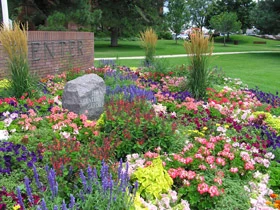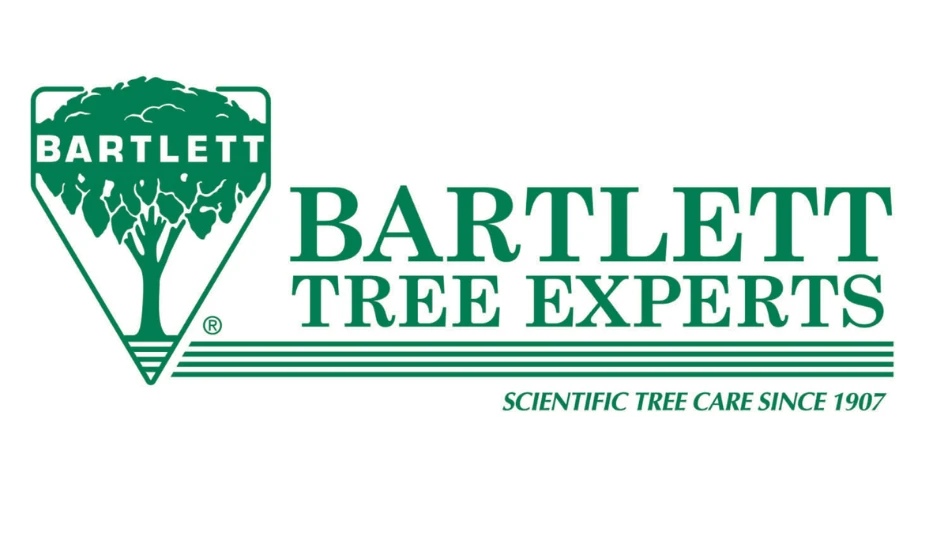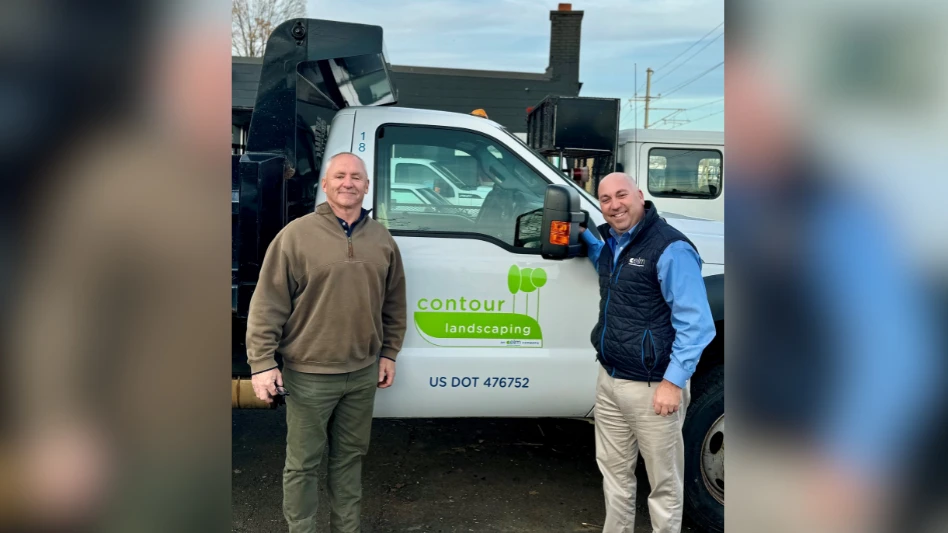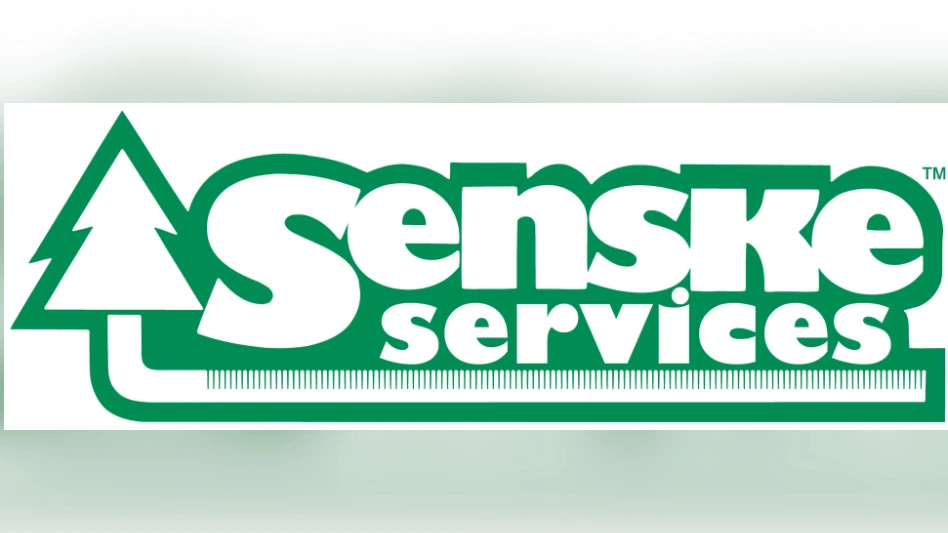
However counterintuitive it might sound, Kris Ashby, owner of Elite Grounds in Pleasant Grove, Utah, applies chemicals precisely so that he can avoid using them at all.
“We spend a lot of time trying to prevent issues,” says Ashby, whose nine-year-old lawn and landscape company handles mostly commercial maintenance and installation. With 60 employees, it is one of the largest landscape firms in Utah. “We’re pretty aggressive, but because we’re consistent, we don’t use a lot of chemicals. For instance, we have a big push in the spring to make sure we get our pre-emergents down at the right time.”
Elite Grounds, which Ashby founded in 2003 with business partner Mark Minson after working for three decades in the field, has always had a scientifically-driven focus on results. Yet for many landscape professionals in Utah, a defining moment came two years ago when a tragic accident galvanized the industry to new safety standards.

The untimely tragedy became a rallying cry for improving Utah’s pesticide regulatory system; today, landscape companies are required to become licensed applicators. Previously, the system only required individual workers to become licensed.
“A lot of companies dump chemicals because they let things get away from them, and they’re trying to get things in line,” says Ashby. “We’re very selective about chemicals. We believe in the integrated pest management approach of identifying the plant first, and then choosing the right chemical that is specific to taking care of the problem.”
Although chemical applications is hardly the sole focus of Elite Grounds’ work – the firm maintains large commercial properties for cities and companies, has assisted Utah’s professional soccer team with turf management, and completes large landscape installations – it provides an apt metaphor for the firm’s approach to business.
“I started Elite because I wanted to create a problem-solving company that has the experience and resources to give people real solutions,” says Ashby. “We’re very strong in chemical knowledge, and we’ve become a real partner with large campuses such as Novelle, which is an international software company here. We take care of their campus, and they like us because we have all the professionals to do it.”
The right way. The key to using chemicals properly, says Ashby, is to train your workers properly, invest in further education, and take licensing and continuing education seriously.
 “One of the differences between my company and a lot of others in Utah is that I built my company around the green industries – I have 17 licensed chemical applicators, a staff person with a bachelor’s in soil science, three arborists and a licensed backflow technician,” says Ashby, who got started in the industry in 1976 when he went into business with his father. “We cover the large needs of professional industries.”
“One of the differences between my company and a lot of others in Utah is that I built my company around the green industries – I have 17 licensed chemical applicators, a staff person with a bachelor’s in soil science, three arborists and a licensed backflow technician,” says Ashby, who got started in the industry in 1976 when he went into business with his father. “We cover the large needs of professional industries.”
In addition to maintaining corporate campuses, Elite Grounds also works with a lot of smaller cities that don’t have their own arborists or landscape professionals on staff. “There’s a niche. If they need arborists, in a single call they can have us do it.”
The company even has a licensed right-of-way applicator and vertebrate animal pest management applicator. The former takes care of median strips in major roadways around Salt Lake City, while the latter is trained to safely treat animals like voles.
The company’s geographic focus is on the Greater Salt Lake City area, which is where the bulk of the population resides in Utah, which consists large of rural and public land. Elite Grounds also maintains a handful of residential properties on a selective basis.
Being green. Some might find it ironic that Elite Grounds’ strong chemical knowledge has actually led the firm to become an industry leader in the rapidly growing field of organic lawn care. Yet Ashby is not surprised and says it is a natural outgrowth of chemical know-how.
“We have a lot of lush gardens here, and our lawns are a beautiful blue grass and rye mix. Yet as water has become more and more of an issue, we’ve spent a lot of time developing water-efficient landscapes,” he says. “With fertilizer costs going up and concerns about chemicals, we have also added organic programs to the company.”
The results are impressive, Ashby says. “I’ve done organics on my home for 12 years now,” he says. “For years, organics were a little pricey. Yet regular fertilizers are petroleum based, so they’ve skyrocketed in price in the last few years. Meanwhile, biological treatments have gone down in price and become more competitive.”
He adds, “They’re getting into the same playing field now. All kinds of research shows why biological, organic treatments are helpful and you can really have great results.”
Efficient equipment. Another major emphasis of Elite Grounds is on the productivity and efficiency of its equipment. It uses two-man mowing crews and has an in-house mechanic division. Because of its emphasis on efficiency, quality equipment and regular upkeep, the company is able to operate a robust fleet of 34 trucks with only 60 employees.
“We keep our equipment really efficient, and we’re constantly buying new equipment that will keep us efficient,” says Ashby. “Although it’s leveled off recently, fuel prices have been going up almost a penny a day, so we’re very conscious of fuel use too.”

Reaching goals. Nearly a decade after he started Elite Grounds, Ashby says that he and his business partner have accomplished their goal of providing real solutions for business owners. “They see our commitment to being a professional company at all times,” he says.
The secret to success in the lawn and landscape industry, says Ashby, is to love the work while also understanding the business side. “A good businessman relates to the industry, but also understands profit and loss, taxes, cash flow, regulation and all of that. We just came out of the worst winter ever for snow pushing – we’re down 80 percent in snow revenue – but because of our business practices, we’re fine.”
For Ashby, his own business and the industry’s future are about chemicals. It’s unlikely that Elite Grounds or other companies will stop using chemicals anytime soon, yet he wants to limit their use and follow the market as it moves towards organic treatments.
“When it comes to chemicals, waste is always a bad thing – it’s damaging to plants, soils and people ultimately if it’s not done correctly,” he says. “Lots of cities and towns are now banning chemicals. That’s one reason why we’re pretty excited about organic programs, because they’re so safe. They’re not as popular yet as I’d like to see them.”
Read more here:
Latest from Lawn & Landscape
- Wind Point Partners acquires ExperiGreen Lawn Care
- Twin engine takeoff
- Winter's well underway
- Lawn and Landscape Marketing on a Budget
- Takeuchi-US hires Aarsvold as Southwest region product manager
- Owning the new role
- SiteRecon: 3X your estimating capacity without hiring
- SiteRecon: How to become a million dollar producer in 2025





